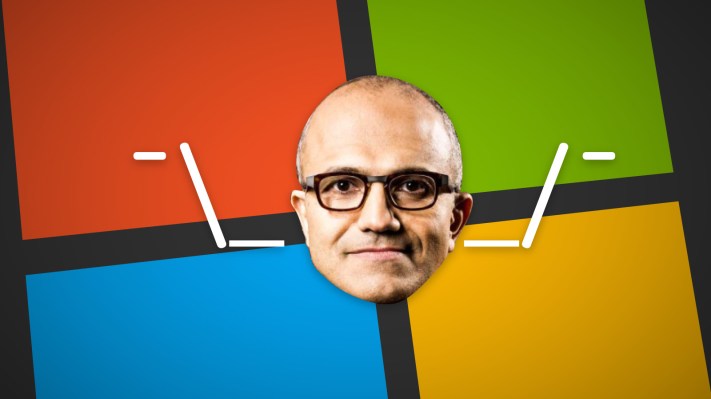This morning marked a long-awaited financial mess for Microsoft, which wrote down more than $7 billion of goodwill related to its purchase of the majority of Nokia’s hardware business.
The charge was not a surprise. The scale of the dismissal was; the total sum deleted is larger than the originally reported purchase price of the assets in question.
Math can be both poetic, and ironic. To see it manage both qualities at the same time in this case is, well, both poetic and ironic. (You can go meta in either direction, though you risk tautology and recursion, in equal sums.)
Regardless, Microsoft continued its hedge clearing by announcing that it will cede 7,800 employees to other companies, while taking a roughly $800 million charge on top of the writedown. So, to be clear, Microsoft’s earnings on a normal accounting (GAAP) basis are hosed in the current quarter.
On a cash basis, Microsoft is in fine shape. Taking into account intangibles, this is going to hurt its period-EPS. Such is life.
Microsoft has been here before with aQuantive, so I doubt that its investors are too shocked. Still, a few notes are worth our time. We’ll use bullet points to save time:
- With Nokia, Microsoft was stuck between terrible options, took the Big Kid route, and lost billions. The company was trapped between paying for love, and watching its partner put on an Android jersey. So it took the shop in-house. And sometimes instead of accreting synergy, you write off $7.6 billion. This is one of the key advantages of being an incumbent: Invested and burned money can have the same aroma.
- No one makes money off of hardware but Apple. Microsoft has publicly said that its phone division will be cash-flow breakeven by the end of its current fiscal 2016, which ends in just under a year. That’s different than being a profit source. An asset that can, at best for now, not lose money is only so valuable.
- Having written off nearly every dollar of the deal, expectations are lowered. Now that Microsoft has thrown the white flag, if its phone business can put points on the board, it’s almost like an apology after the fact.
- The company is still going to do phones. According to Neowin: “[A] source revealed that Microsoft now plans to launch just one or two models per year in each of these three market segments, indicating that the company intends to dramatically reduce the number of devices in its range.” That makes decent sense, given that I doubt you could name more than one Lumia handset at the moment. I can do the following: The 1020, the smaller one, the cheap one, and the other 500-thingy that is also cheap.
- Investors are not fazed. Given how strongly Microsoft signaled the move, it’s easy to understand that investors are anything but shocked at the news. Microsoft was roughly flat today in a down market, meaning that it beat most shares in regular trading, while announcing the multi-billion dollar oopsie.
- This is a Ballmer hangover. The Nokia deal was in place before Satya took over the Iron Bank of Redmond. Akin to President Obama’s first budget, you go to war with the army you have.
- The bloodletting might be over. Microsoft has taken a hatchet to its Nokia assets several times, and fired the boss of the group that it purchased for three commas. Given this new round of layoffs, you have to wonder what fat might be left, if any.
The new question is how Microsoft manages to sort its hardware work in this new reality. What will Satya do? The company declined to make him available for an interview, but I have a thought: When you are desperate to change your single-sale business into a subscription run-rate, you are penny-conscious. And everything that is a detriment to that business model shakeup has to go.
